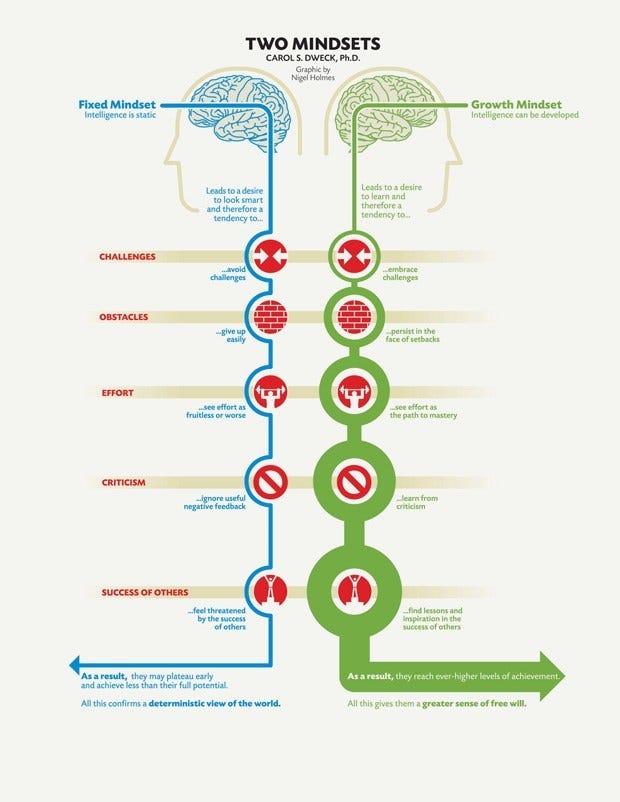Tiny Revolutions №28: Pandora's Box
just open it already 💨
Hi, I’m Sara, and this is Tiny Revolutions, a weekly dispatch of personal writing and links about mental and emotional wellness. Reply anytime, I love hearing from you.

Pandora’s Box Painting via Painting Valley / CC-BY NC 4.0
As a rule, I am not big on revisiting the past. It’s not exactly that I don’t like it, but more that I don’t romanticize it. I’m all too aware that while I’ve had good times and bad and all manner of in between, there are some that I miss, but there are just as many that I am incredibly glad are over. And that even the great times had some shitty aspects and vice versa.
What I’m saying is that it’s complicated, the past. You never know how it will hit you.
So when my parents announced recently that they would be cleaning out their basement, home of many undisturbed artifacts from my youth, I balked. I’d actually been offering to do it for years because it’s jerkish to just let it sit there and take up space, but was always secretly relieved when they declined. It was never the right time, it was too big a task, etc. We always found reasons to push it off.
But this year the reasons evaporated. There was simply too much stuff in the basement and my parents are at a stage in their lives where they are simplifying, pandemic be damned. Now, this is the part where I am lucky. I have eight siblings of varying talents, and some of them have the talent of supreme organization. But not me! So fortunately I didn’t have to be part of the team with the torturous job of sorting through 50 years of family flotsam.
However, I did end up with a box of the stuff that, out of all the boxes and boxes from the years and years, the team deemed were worth saving for me. A 56-quart plastic container full of mementos I haven’t seen in decades.
My own personal Pandora’s Box.
As the myth goes, poor Pandora, the first human woman, was given two things by Zeus: 1) a sealed box that mortals like her were forbidden to open, and 2) intense curiosity. Pandora let #2 torture her for years until she couldn’t bear it any longer and opened #1, unleashing all manner of forces of evil and suffering.
One might say that I have at least learned to learn from the past, so I just went ahead and popped the top as soon as I got it. And whew, it was intense. There were notes and letters from high school and college and just-after-college boyfriends. Articles I’d written for my high school newspaper. Journals I’d kept and souvenirs from trips I’d taken. Concert ticket stubs. Awards, diplomas, commendations. Business cards. Postcards. Paystubs. Pictures of people I’ve loved and lost touch with. Pictures of people I still love and talk to all the time, looking unfathomably young and shiny.
Most of all, there was a portrait of the hopes of the young woman I was all those years ago, evidence of all that I was then and the specter of who I wanted so much to become. My dreams on full display, being read by the middle-aged woman who’s accomplished some of them, and come nowhere near others.
And it was too much, of course. I made it maybe 30 minutes before I had to close it and move on.
It made me think of a quote from one of my favorite essays, Joan Didion’s famous “On Keeping a Notebook”:
“I think we are well advised to keep on nodding terms with the people we used to be whether we find them attractive company or not. Otherwise they turn up unannounced and surprise us, come hammering on the mind’s door at 4 a.m. of a bad night and demand to know who deserted them, who betrayed them, who is going to make amends.”
Opening that box the other day was a bit like answering the door to my 23 year-old-self. “Who are you? Did you do what you said you would? Have you made me proud?”
And I didn’t know what to say to her. Or how I could possibly make her see that while I haven’t quite turned out how she’d expected (ahem, I’m single, childless, and, uh, not rich?) — at least not yet — it’s not as bad as it seems.
Concept: Growth Mindset
What I know now that the 23-year-old me didn’t quite understand is that becoming is a lifelong process. So often we think of adulthood as a series of milestones to hit: school, job, marriage, kids, prosperity, grandchildren, golden age. Of course it’s not always (or maybe even usually?) so linear. But it’s still the default and the standard most people aspire to.
But milestones, while nice, don’t tell us anything about who a person is. More importantly, they don’t tell us anything about who we are. Me at 23 figured I’d check the boxes and have it all figured out. Me at 43 knows that while I might check some of the boxes, I’ll never have it all figured out. And that’s a good thing!
American psychologist Carol Dweck defined this point of view as stemming from what she called the growth mindset: “In a growth mindset, people believe that their most basic abilities can be developed through dedication and hard work—brains and talent are just the starting point. This view creates a love of learning and a resilience that is essential for great accomplishment.”
This is opposed to having a fixed mindset: “In a fixed mindset, people believe their basic qualities, like their intelligence or talent, are simply fixed traits. They spend their time documenting their intelligence or talent instead of developing them. They also believe that talent alone creates success—without effort.”
Here’s a nice chart that shows how they play out:

Having a growth mindset is the key to resilience. And resilience is the key to getting what you want out of life. When I struggle these days or start to beat myself up for all the things I haven’t accomplished, I find that that comes from voice of the old part of me who never escaped the fixed mindset. Who believed if you didn’t get married, you were a loser. Or if you didn’t have the right job, or the right body, or whatever, that it was a result of your personal inadequacies.
I’m fortunate that there’s now a smarter, kinder, louder voice who can remind me that things aren’t that simple. And that life is a long road where the only constant is change.
By the way, the part of the Pandora myth that usually gets left off is that once all the horrors have escaped and she’s slammed the box shut, a tiny voice remains inside. She opens the box again and discovers that the voice is hope.
Learn about your girl.
Remember.
Real talk.
A Tiny Assignment
Think about yourself when you were at your smuggest and most insufferable. What would you tell that person now? Is there a young person in your life who might need to hear it? Or an old one?
😘
Sara
p.s. Thank you for reading! Share this with a friend who’ll get it.




